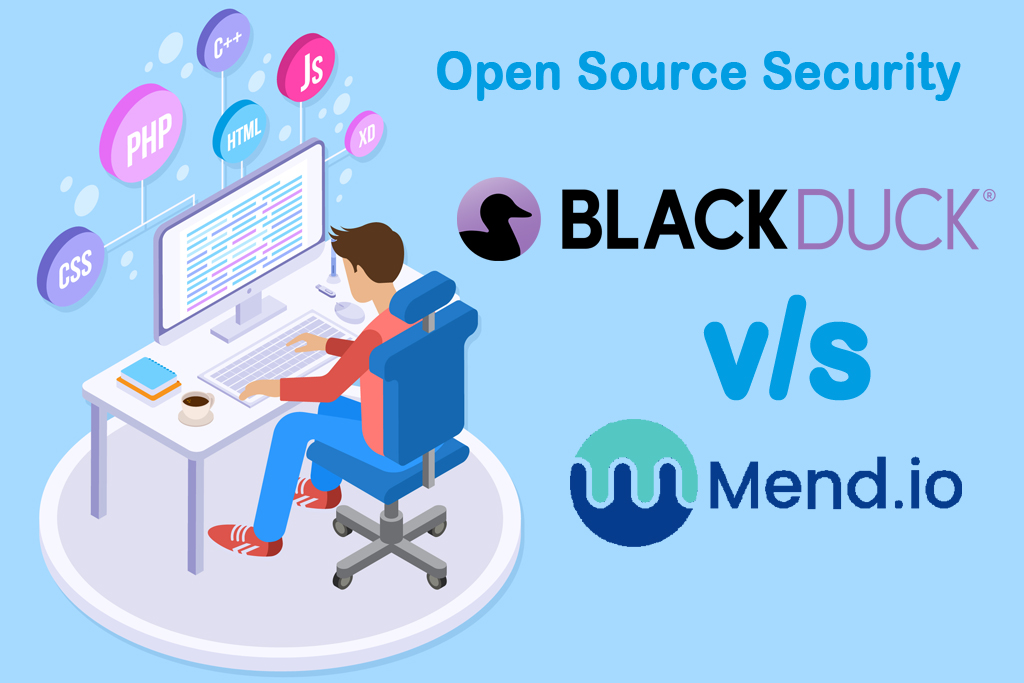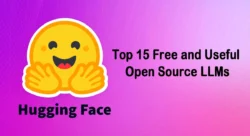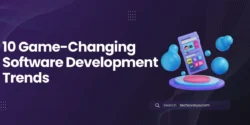In today’s software development landscape, open-source components are indispensable, powering innovation and accelerating project timelines. However, their widespread use introduces significant security and compliance risks, such as vulnerabilities and license violations. Software Composition Analysis (SCA) tools are essential for identifying and mitigating these risks by scanning open-source dependencies for potential issues. Among the leading SCA tools, Black Duck SCA and Mend (formerly WhiteSource) stand out for their comprehensive approaches to securing the software supply chain. This article provides an in-depth comparison of Black Duck and Mend, focusing on their capabilities in managing open-source security risks, to help you understand how these tools can safeguard your software development process.
Table of Contents
Overview of Black Duck SCA
Black Duck SCA, part of Black Duck Software, Inc. (rebranded from Synopsys Software Integrity Group in October 2024), has been a pioneer in the SCA market for nearly two decades. Renowned for its robust license compliance capabilities and proficiency in analyzing C and C++ code, Black Duck uses multiple scan technologies to identify open-source dependencies across source code, files, artifacts, containers, and firmware. Its strengths include comprehensive Software Bill of Materials (SBOM) support and integration with DevOps pipelines, making it a preferred choice for enterprises with complex compliance needs.
Key Features for Open-Source Security:
- Comprehensive Scanning: Identifies direct and transitive dependencies to uncover vulnerabilities across various software types.
- SBOM Support: Imports and exports multiple SBOM formats, providing detailed visibility into dependency relationships.
- License Management: Ensures compliance with open-source licenses, reducing legal risks.
- DevOps Integration: Seamlessly integrates with build pipelines and repositories, supporting container and binary scanning.
Overview of Mend
Mend, rebranded from WhiteSource in May 2022, is designed for agile development environments, serving over 1,000 customers, including major Fortune 100 companies. It integrates tightly with DevOps pipelines, offering real-time vulnerability insights directly within the development workflow. Mend emphasizes developer productivity through automation, reachability analysis, and a lower false positive rate, making it ideal for fast-paced development teams focused on open-source security.
Key Features for Open-Source Security:
- Real-Time Feedback: Provides vulnerability alerts and remediation paths during development.
- Reachability Analysis: Pinpoints exploitable vulnerabilities specific to your application.
- Automation: Streamlines vulnerability management with automated workflows and policy enforcement.
- DevOps Integration: Integrates with CI/CD pipelines, repositories, and IDEs for seamless workflows.
Feature Comparison
The following table compares Black Duck SCA and Mend across key aspects relevant to open-source security, based on industry analysis as of January 2023:
| Aspect | Black Duck | Mend |
|---|---|---|
| Developer Guidance | Score: 2/5. Directs to current versions; developers must research risks and compatibility. | Score: 3/5. Provides patch risk details; developers still assess compatibility. |
| SBOM Support | Score: 4/5. Imports/exports multiple SBOM formats, strong in C/C++ analysis. | Score: 2/5. Exports one SBOM format, no import, limited nesting visibility. |
| Accuracy (False Positives) | Score: 2/5. False positive rate: 5–10%. | Score: 3/5. False positive rate: 2–5%. |
| DevOps Integration | Score: 4/5. Supports build pipelines, container/binary scanning; no runtime protection. | Score: 3/5. Integrates with build environments; no binary scanning or runtime protection. |
| Total Cost of Ownership | Score: 2/5. High pricing, increased labor costs due to guidance and accuracy issues. | Score: 3/5. Straightforward pricing, but labor costs from false positives. |
1. Developer Guidance
- Black Duck: Offers limited guidance, directing developers to current versions but requiring additional research on risks and compatibility. This can slow down remediation efforts for teams addressing open-source vulnerabilities.
- Mend: Provides better guidance by detailing patch risks, helping developers prioritize remediation. However, compatibility assessments still require manual effort, which may impact efficiency.
2. SBOM Support
- Black Duck: Excels in SBOM support, scoring 4/5. It supports multiple SBOM formats for import and export, offering clear visibility into dependency relationships, particularly for C and C++ code, which is critical for identifying vulnerabilities in enterprise applications.
- Mend: Scores 2/5 due to limited SBOM capabilities. It exports SBOMs in one format but lacks import functionality and robust nesting visibility, which may hinder complex dependency management.
3. Accuracy (False Positives)
- Black Duck: With a 5–10% false positive rate, Black Duck requires more manual effort to filter out non-issues, potentially increasing remediation time for open-source vulnerabilities.
- Mend: Performs better with a 2–5% false positive rate, allowing developers to focus on genuine vulnerabilities, enhancing efficiency in securing open-source components.
4. DevOps Integration
- Black Duck: Scores 4/5 for strong integration with build pipelines, repositories, and support for container and binary scanning, which are crucial for securing open-source components across the development lifecycle.
- Mend: Scores 3/5, offering solid integration with build environments and repositories but lacking binary scanning capabilities, which may limit its effectiveness in certain open-source security scenarios.
5. Total Cost of Ownership
- Black Duck: Scores 2/5 due to high pricing ($10,000–$70,000) and increased labor costs from limited guidance and higher false positives, which can impact the cost-effectiveness of open-source security management.
- Mend: Scores 3/5 with straightforward pricing based on contributing developers, but labor costs persist due to false positives and limited guidance.
User Reviews and Sentiment
User feedback provides insights into how Black Duck and Mend perform in real-world open-source security scenarios, based on platforms like SoftwareReviews and Peerspot.
Black Duck SCA
- Composite Score: 7.8/10 (SoftwareReviews)
- Customer Experience Score: 8.2/10
- Satisfaction with Cost Relative to Value: 91
- Net Emotional Footprint: +100 (100% positive user love)
- Pros:
- Reliable and performance-enhancing for open-source security.
- Strong policy engine (98/100) and SCA capabilities (96/100).
- Easy integration with cloud and on-premises setups for secure development.
- Cons:
- High licensing and deployment costs may deter smaller teams.
- Complex initial setup for some users.
- Reporting features could be enhanced for better vulnerability tracking.
- User Comments:
- Users praise its snippet scanning for identifying open-source risks but note high costs.
- Comprehensive license compliance management is appreciated, though setup complexity is a concern.
- The user-friendly interface aids in detecting open-source components across platforms.
Mend
- Rating: 4.2/5 (Peerspot)
- Mindshare: 7.8% as of July 2025
- Pros:
- Easy setup and integration into CI/CD pipelines for real-time open-source security.
- Strong automation reduces remediation time for vulnerabilities.
- Supports over 200 programming languages, enhancing versatility.
- Cons:
- Static Application Security Testing (SAST) capabilities are maturing, limiting proprietary code analysis.
- Some users report a clunky UI and occasional high false positives.
- Documentation could improve for onboarding.
- User Comments:
- Users appreciate Mend’s ability to scan repositories without complex configuration.
- Quick issue resolution with support is noted, though some find the UI outdated.
Strengths and Weaknesses
Black Duck SCA
- Strengths:
- Robust SBOM Support: Ideal for detailed dependency visibility and compliance with open-source security standards.
- C/C++ Proficiency: Excels in analyzing languages critical to enterprise applications, addressing 65% of vulnerabilities in some analyses.
- Market Leadership: Holds an 18.2% mindshare in SCA (July 2025) and is recognized as a Gartner leader.
- Weaknesses:
- Higher False Positives: A 5–10% rate increases manual remediation efforts.
- Cost: High pricing may be prohibitive for smaller firms.
- Limited Developer Guidance: Requires additional research, slowing workflows.
Mend
- Strengths:
- Developer-Friendly: Offers better guidance and lower false positives (2–5%), enhancing productivity in open-source security.
- DevOps Integration: Seamless integration with CI/CD pipelines supports agile development.
- High ROI: Scores 7.5/10 in ROI sentiment on Peerspot, reflecting cost savings through automation.
- Weaknesses:
- Limited SBOM Support: Lacks import capabilities and robust nesting visibility.
- Maturing Features: SAST capabilities and some integrations need improvement.
- User Interface Concerns: Some users report a clunky UI, though updates have improved it.
Pricing and Scalability
Black Duck SCA
- Pricing: Ranges from $10,000 to $70,000, based on unlimited users for code size. Some users find it expensive for open-source security management.
- Scalability: Rated 8/10 on Peerspot, scalable for enterprises with cloud and on-premises support, but pricing may limit smaller firms.
- Deployment: Offers flexible cloud and on-premises options, catering to privacy needs, but complex deployments may require support.
Mend
- Pricing: Competitive yearly pricing based on contributing developers, more accessible for enterprises but potentially costly for startups.
- Scalability: Rated 7.7/10 on Peerspot, scales effectively for large projects and supports CI/CD workflows.
- Deployment: As a SaaS solution, Mend eliminates server management, offering flexible cloud options with strong support.
Customer Support
- Black Duck: Scores 9.3/10 in customer service sentiment on Peerspot. Users praise professionalism but note occasional response delays.
- Mend: Scores 6.6/10, with quick, knowledgeable support for large organizations, though some report issues with first-level support quality.
Industry Context and Future Outlook
The SCA market is evolving due to increasing software supply chain attacks, such as SolarWinds. Black Duck and Mend are adapting, with Mend incorporating AI-driven reachability analysis and Black Duck enhancing SBOM capabilities to meet regulatory demands. As open-source software comprises 77% of codebases, both tools are critical for securing modern applications.
Conclusion
Black Duck SCA and Mend are powerful tools for managing open-source security risks, but their strengths cater to different needs. Black Duck excels in SBOM support and C/C++ analysis, making it ideal for enterprises with stringent compliance requirements. Mend shines in developer-friendly features and DevOps integration, suitable for agile teams. By understanding your organization’s security priorities, you can choose the tool that best safeguards your software supply chain.







